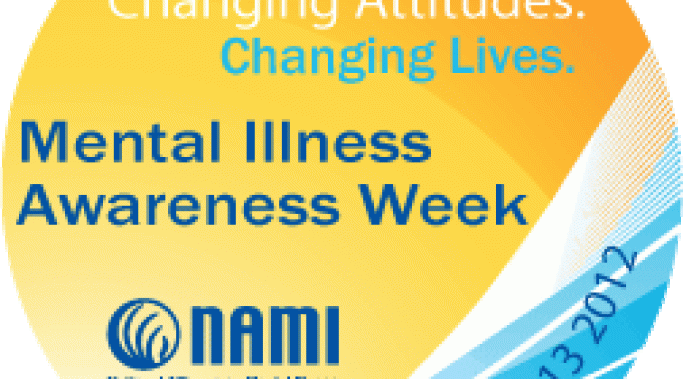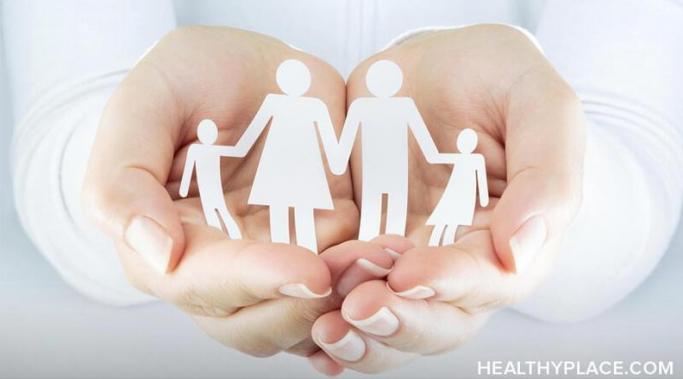I’ve been writing about bipolar disorder and mental illness for nine years. Nine long years of pain and depression and episodes and hyperreality and desperation and description and explanation and exploration. And people still don’t get it. Even if you look at the past year – over 200 articles, there still seems to be nothing but a chasm between the mentally ill and so many of the mentally well.
And I think this is because language is insufficient to express emotional pain and turmoil. We have good words for describing physical pain: radiating, hot, throbbing, sharp, achy and so on. But when it comes to emotional pain we’re “sad.” The same word applies when you drop your ice cream cone on the ground as when you’re so depressed that you can’t get out of bed. It’s not surprising that people don’t get what we’re talking about.
Talking About Bipolar
Come out, come out, wherever you are!
Yes, it’s Mental Illness Awareness Week again and if you’re here, at HealthyPlace, you probably already got that memo. But you might be wondering what to actually do to promote mental illness awareness. No art exhibit, educational session or candlelight vigil in your neighbourhood? Don’t worry – anyone can promote mental illness awareness just by talking about mental health.
On Monday, I wrote about the Faces of Mental Illness campaign run by the Canadian Alliance on Mental Illness and Mental Health. This campaign is part of the Mental Illness Awareness Week which is this week in Canada (next week in the U.S.).
I like this campaign, and what’s more, given by the number of people who have read and shared the article, you like it too. People like hearing from other real people who have faced real mental illnesses and come out the other side to create whole and satisfying lives for themselves. And there’s absolutely nothing wrong with that. People find it helpful and hopeful and inspiring.
But the campaign leaves out a huge segment of the mentally ill population. Where is the celebration of those who fight every day to beat their mental illness but don’t become published authors or start a non-profit?
One of the dumbest things I’ve ever heard is of doctors not giving their patients their diagnoses. That’s right – the patient sees the doctor, the doctor does a full assessment, the doctor reaches a conclusion, but keeps it a big secret like an upcoming birthday party.
This is an example of parental doctoring and completely insults the patient.
What made you seek help for mental illness? Your answer could help people who love someone with mental illness because one of the questions I get more than any other is asked by loved ones. In short, people want to know how to help their loved ones get help for a mental illness. Some people want to know how to make their loved ones accept treatment. Some people want to know how to make their loved ones follow through with treatment, like take their medication. And some people just want to know how to convince someone that they have a mental illness.
I’m dealing with people who love someone with a mental illness who is refusing help, for one reason or another.
So I ask you – what made you get help for your mental illness?
Sometimes, probably due to my particular experiences online, I think that people will never understand mental illness. There are people who think that mental illness isn’t real; there are people that think that medication is poison; there are people that think mental illness is “all in our heads’” there are people that think that those with mental illness just have to “pull themselves up by their bootstraps.” In short, sometimes it feels like there are so many uncompassionate, ignorant, hateful people that all the writing in the world won’t make a difference.
But the thing is, my experiences aren’t necessarily indicative of the real world. And yesterday’s brunch proved that to me.
People with a first-degree relative (say, a mother or father) with bipolar I have a seven times greater chance of having bipolar disorder themselves. Offspring of a parent with bipolar disorder have a 50% chance of having another major psychiatric disorder.
And if both your parents have bipolar disorder or another major mental illness? Well, I have no idea how that works out by the numbers.
In short, if you’re bipolar and having kids, there’s a very good chance that your children will have a mental illness too.
So the question is this, if you know that your child will have a mental illness, should you be having children in the first place?
As you might have heard, last week it was revealed that Jesse Jackson Jr., an Illinois congressman, is in treatment for bipolar disorder. Jackson Jr. has been on medical leave since June 10th and has been diagnosed with bipolar II.
As Candice Crawford, CEO and president of the Mental Health Association of Central Florida in Orlando, says, “People with bipolar II can lead perfectly normal lives.”
I agree completely, but the question is, can they be elected to public office?
When people realize they have a mental illness like bipolar disorder or schizophrenia, one of the first feelings they have is fear. And there’s a lot to be afraid of. There are the treatment, doctors, symptoms, side effects and then there’s the illness itself. It’s completely reasonable to feel scared in that situation.
And in that moment, or possibly in a moment shortly thereafter, the fear of abandonment becomes a reality. A very reasonable and realistic fear is that people will abandon you because of the mental illness.
Now, of course, no want wants to be bipolar, but people do make the conscious decision to admit to their bipolar disorder online. There are many reasons to do this but often people want to be able to express themselves in catharsis or reach out for support. These are perfectly good reasons.
But, unfortunately, that decision is not always met with understanding and support. In fact, sometimes it’s met with vicious hatred.
Not long ago I was in touch with someone newly-diagnosed with bipolar disorder who had started a blog to express his feelings on it. He was just an ordinary guy trying to do his best to make sense of the senseless.
And what happened? Quite simply he was attacked on all sides from the antipsychiatry crowd. Somehow they found him, zeroed in on him, and hounded him with hatred until he slinked off of Twitter altogether.



![MP900432989[1]](/sites/default/files/styles/blog_listing/public/uploads/2012/09/MP9004329891-682x1024.jpg?itok=NpPW8BSS)

![MP900387256[1]](/sites/default/files/styles/blog_listing/public/uploads/2012/09/MP9003872561.jpg?itok=g3_xsZTm)


